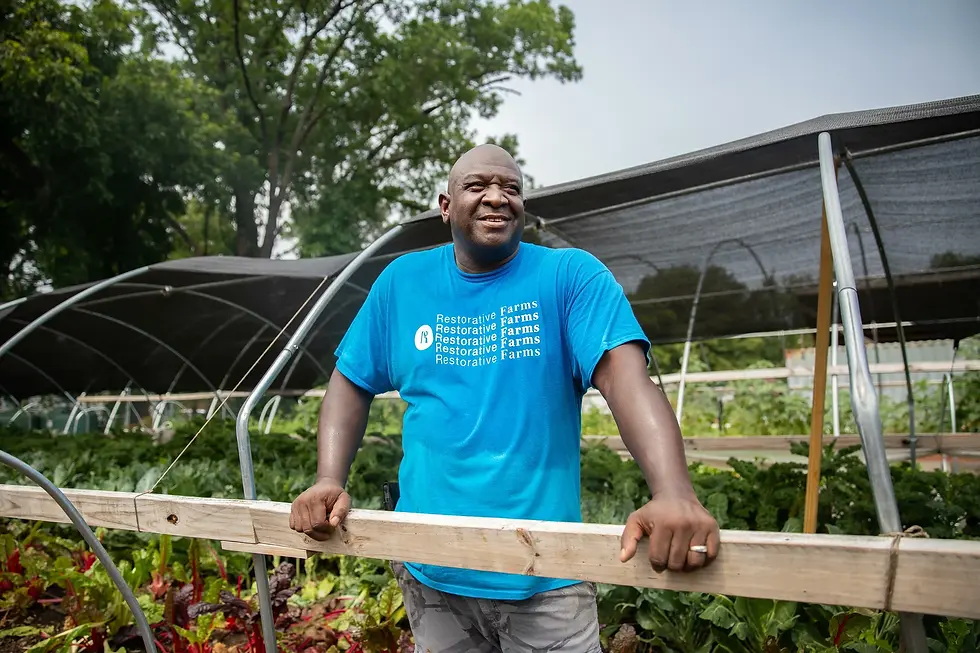Interrupting the Cycle of Mass Incarceration Through Healing
- Eden Trenor

- Dec 27, 2022
- 2 min read
Updated: Dec 28, 2022
Freedom Project, Renton, WA
Freedom Project works alongside the community to dismantle the institution of mass incarceration and heal its traumatic effects on individuals directly impacted by incarceration, on their loved ones, and on our community.

Photo: The Freedom Project Team, including Executive Director David Heppard (far left) and Eugene Youngblood, Facilitator and Community Engagement Specialist--attendees of the 2022 Thriving Communities Gathering.
They are a community-centered and culturally-responsive organization, directed by the community that they seek to serve – working to center those most impacted and marginalized, especially Black, Indigenous, and Communities of Color. They create space for collective healing and liberation by seeing one another for their humanity and amplifying the power that already exists within.
Specifically, Freedom Project interrupts the cycle of incarceration with programs that
provide healing connection and restorative communities for participants both inside and outside prison. Their relationships support incarcerated individuals and those recently released through the practice of Nonviolent Communication, mindfulness, racial equity, and anti-oppression. These practices define them, how they work with the communities they serve, and how they train their volunteers.
Unique Aspects
Support incarcerated individuals to become workshop facilitators and mentors.
Those recently released from prison are asked to develop and revise our curriculum. This collaborative practice supports our values of accountability, equity, and authenticity.
In 2017, people who are currently incarcerated facilitated 463 hours of class time.
Since 2001, over 320 volunteers have facilitated Nonviolent Communication, mindfulness and equity classes inside prisons.
Volunteers Are An Essential Component
Volunteers lead all of Freedom Project programs, both inside and outside of prison. This enables us to continue to meet the demand for programs inside and outside prison and reach more participants without depending on paid staff.
To more than 8,100 incarcerated individuals
Up to 12 times a week, 48 weeks a year
Inside 9 facilities
Freedom Project staff is comprised of individuals who serve as leaders with specific skills that enable them to be successful in this important work of the community. Many are formerly incarcerated whose brilliance comes to light as they do their work. There is a sense of authenticity in how they honor and respect each other and how they work in the community. No difference!
Freedom Project’s vision is that together we shift from punishment to restoration, from oppression to equity, and from apathy to empathy.
Support can happen in many ways. Freedom Project continues to seek grants, funding from businesses and the public. Support through donations is helpful. One can learn about volunteer options. Leaders in the business community can talk with staff about job opportunities. This is always a key request. And if you connect with the vision of this organization, find ways to learn more about Freedom Project here.






